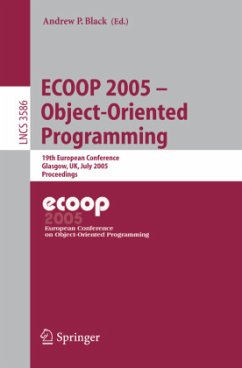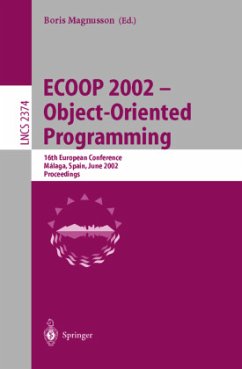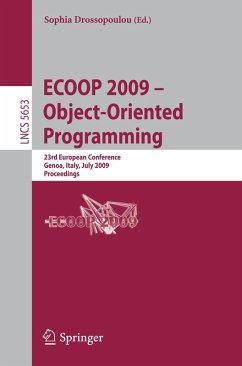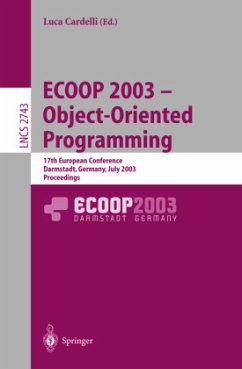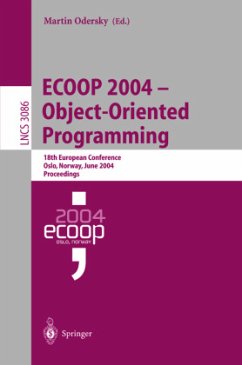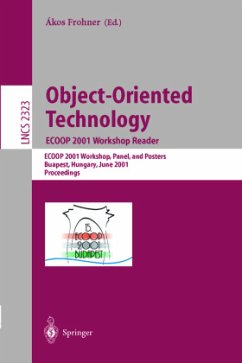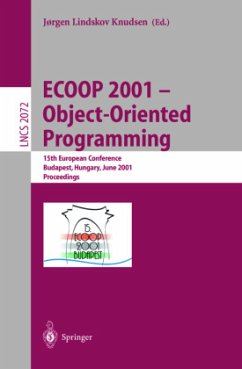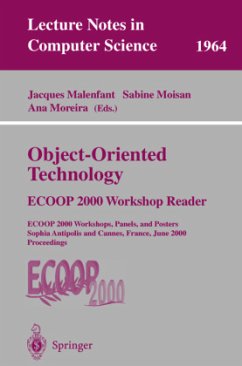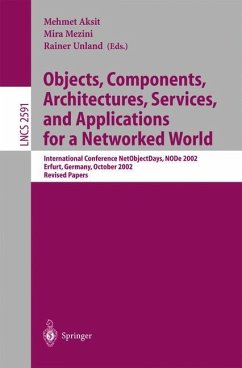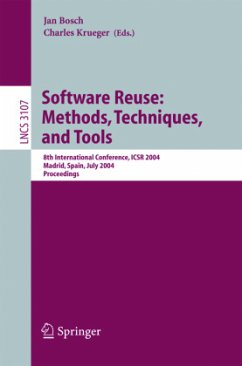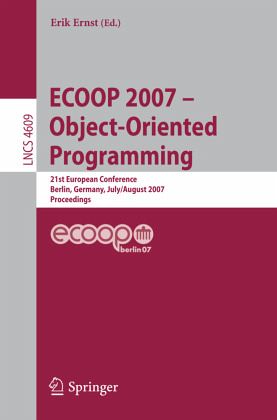
ECOOP - Object-Oriented Programming
21th European Conference, Berlin, Germany, July 30 - August 3, 2007, Proceedings
Herausgegeben: Ernst, Erik

PAYBACK Punkte
38 °P sammeln!
The21stEuropeanConferenceonObject-OrientedProgramming,ECOOP2007, was held in Berlin, Germany, on July 30 to August 3, 2007. ECOOP is the most importantand inspiring forumin Europeandbeyond for researchers,practiti- ers, and students working in that smorgasbord of topics and approaches known as object orientation. This topic area was explored and challenged by excellent invited speakers two of which were the winners of this year s Dahl-Nygaard award in the carefully refereed and selected technical papers, on posters, via demonstrations, and in tutorials. Each of the many workshops complemented ...
The21stEuropeanConferenceonObject-OrientedProgramming,ECOOP2007, was held in Berlin, Germany, on July 30 to August 3, 2007. ECOOP is the most importantand inspiring forumin Europeandbeyond for researchers,practiti- ers, and students working in that smorgasbord of topics and approaches known as object orientation. This topic area was explored and challenged by excellent invited speakers two of which were the winners of this year s Dahl-Nygaard award in the carefully refereed and selected technical papers, on posters, via demonstrations, and in tutorials. Each of the many workshops complemented this with a very interactive and dynamic treatment of more speci?c topics. - nally, panels allowed for loud and lively disagreement. Yet, it is one of ECOOP s specialqualities that this plethora ofactivities add upto a coherentandexciting whole, rather than deteriorating into chaos. The Program Committee received 161 submissions this year. Only 135 of them were carried through the full review process, because of a number of - tractions and a number of submissions of abstracts that were never followed by a full paper. However, the remaining papers were of very high quality and we accepted25 of them for publication. Helping very goodpapers to be published is more useful than having an impressively low acceptance rate. The papers were selected according to four groups of criteria, whose priority depended on the paper: relevance; originality and signi?cance; precisionand correctness;and p- sentation and clarity. Each paper had three, four, or ?ve reviews, depending on how controversial it was.




